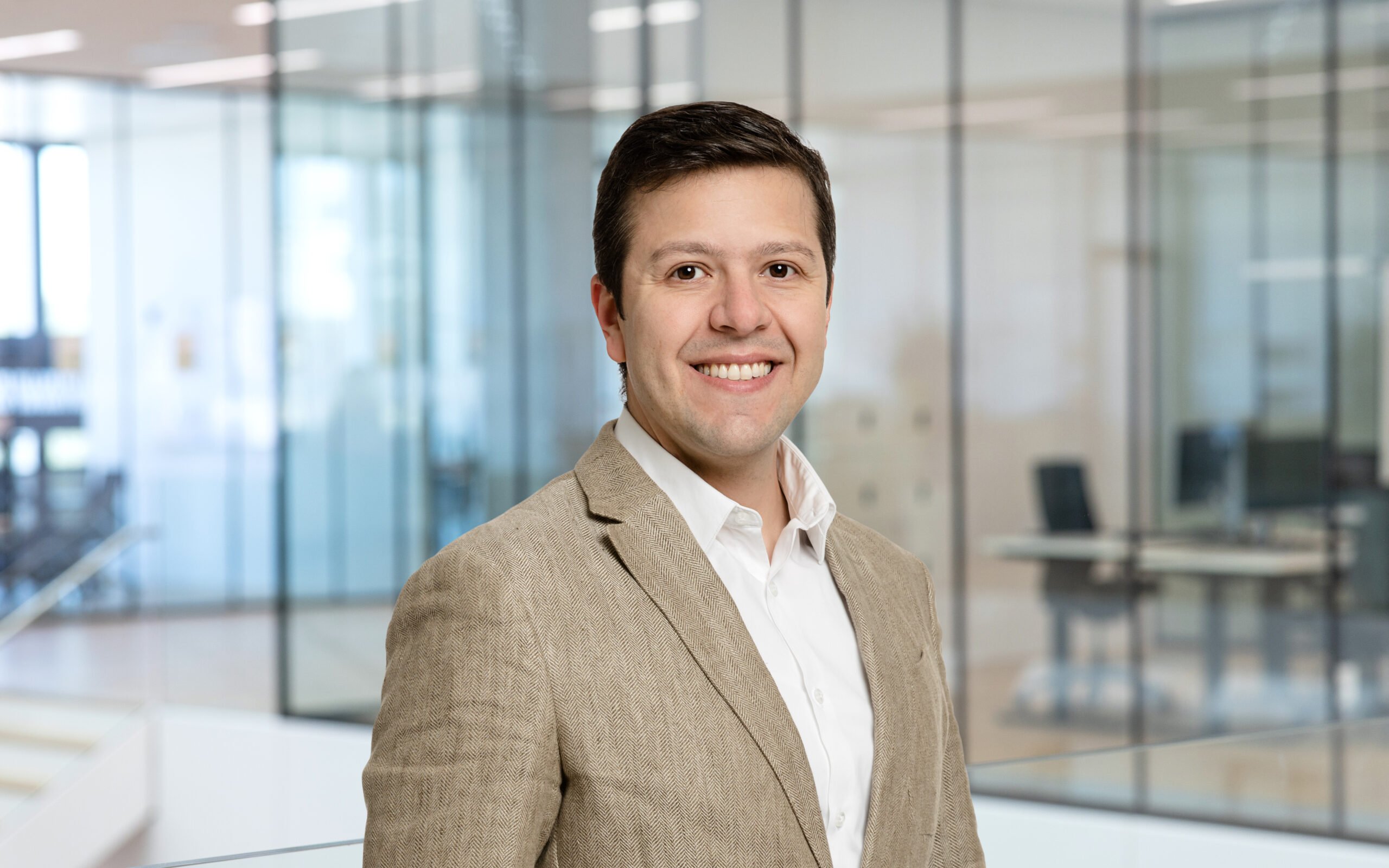DCB Newsletter #9/23: INSIDE DCB – Interview with José García-Tirado
Dear Community,
we are thrilled to present you with the next episode of our series “INSIDE DCB” – this time, with an interview with José García-Tirado. Enjoy the read!

Since the beginning of 2023, José García-Tirado has been a professor specialising in diabetes technology at the University Department of Diabetology, Endocrinology, Nutritional Medicine and Metabolism (UDEM) and at the DCB (Diabetes Center Berne). Together with his team, he is involved in the development of even more precise therapies such as closed-loop systems for people with diabetes and other metabolic diseases.
José, what is your research about?
In our research, we are investigating the effects of type 1 diabetes and how we can develop technological solutions to better manage glucose in the body. We use computer models to understand different aspects of metabolism. Part of our work involves developing automated systems that deliver insulin like a fully functioning pancreas. We test these ideas on the computer and in clinical trials to ultimately make them useful for people with diabetes.
What motivates you to work in the field of diabetes technology? How did you get involved in this topic?
I am an engineer, was diagnosed with type 1 diabetes myself 10 years ago and had to overcome some hurdles, like most people with this disease. Coincidentally, I was attending a conference on the subject a few months later when I had an „aha“ moment. I realized that I needed to get involved with the topic and contribute to the advancement of the field.
This has inspired me to research better technologies for diabetes management. I find it exciting to turn complex ideas into practical solutions and help other people with diabetes.
What is your biggest challenge as a professor?
Being a professor nowadays takes most of your energy and thoughts every day. Balancing my passion and work with family/hobbies time proves to be very challenging. From the work perspective, being the leader of a research group demands constant planning, supervision of human resources, and progress evaluation. Making plans to work in this field also entails close collaboration with experienced medical doctors and knowing very well the regulatory pathways to working with human beings in an ethical and caring way.

Professor Dr. José García-Tirado. Assistant professor with tenure track in diabetes technology.
What goals do you want to achieve with your team and your lab, the PrecisionLab?
Our goal is to develop technologies that can better support people with type 1 diabetes. We not only want to manage blood sugar, but also reduce other health risks. To this end, we are investigating new therapies and developing intelligent algorithms for insulin pumps.
What projects are you currently researching and how can they make life easier for people with diabetes?
The first project deals with the construction of an algorithm deployment platform in collaboration with Universitat Politècnica de Valencia. Such a platform will allow us to test every AID (“automated insulin delivery”) design in a clinical setting.
The second project is the design and testing of the actual smart algorithm to modulate insulin from an insulin pump for people with type 1 diabetes. Such an algorithm will be deployed and tested in our algorithm deployment platform. To do so, we need to go through a rigorous regulatory process with Swiss Medic. After approval, we will test our algorithm on five (5) participants with T1D with real-life challenges.
The third project relates to the understanding and mathematical modeling of macronutrient (carbohydrates, fats, and proteins) absorption in the bloodstream and how different compositions of meals affect glucose absorption.
Where do you hope your research field will be in 5-10 years? What is your vision ?
In the next few years, diabetes management technologies will evolve, with better sensors and insulin preparations. There is even the possibility of developing implantable systems that are even more similar to a pancreas. Similarly, we need to develop more accessible technologies for people with type 1 diabetes, as current options are often expensive and unavailable in many countries.
All these advances can significantly improve the quality of life of people with diabetes.
About José García-Tirado
José García-Tirado is an Assistant Professor of Smart Algorithms in Diabetes Technology at the University of Bern. He has a B.Sc. from the Universidad Nacional de Colombia, a M.Sc. from CINVESTAV (Mexico), and a Ph.D. from the Universidad Nacional de Colombia, all in the field of control systems engineering. He later did a postdoctoral fellowship at the Rheinisch-Westfälische Technische Hochschule Aachen (RWTH Aachen) in 2013 and from 2017-2021 at the University of Virginia where he specialized in advanced control strategies for AID systems. Prof. García-Tirado has been faculty in three countries, at the Instituto Tecnológico Metropolitano (2014-2017 – Medellin, Colombia), University of Virginia (2021-2023, Charlottesville, US), and University of Bern (2023).
Thanks so much for reading and we’ll provide you with the next episode of this series soon!
Dieser Beitrag wurde zuerst als Newsletter auf LinkedIn publiziert. Klicke hier um den Artikel auf LinkedIn zu lesen.
Neuigkeiten
DCB Newsletter #3/24: The DCB Open Innovation Challenge is back!
Dear community, it's that time of the year again...the DCB Open Innovation Challenge is back – and this time, it's...
DCB Newsletter #2/24: DID YOU KNOW… you can help crowdfund innovative diabetes education for South Africans?
Dear Community, we are happy to present you with the next episode of our series “DID YOU KNOW” – this time, with a...
DCB Newsletter #1/24: DID YOU KNOW… that there are Rare Types of Diabetes?
Dear Community, we are happy to present you with the next episode of our series “DID YOU KNOW” in which we publish...


DCB Research AG
Freiburgstrasse 3
3010 Bern
Switzerland